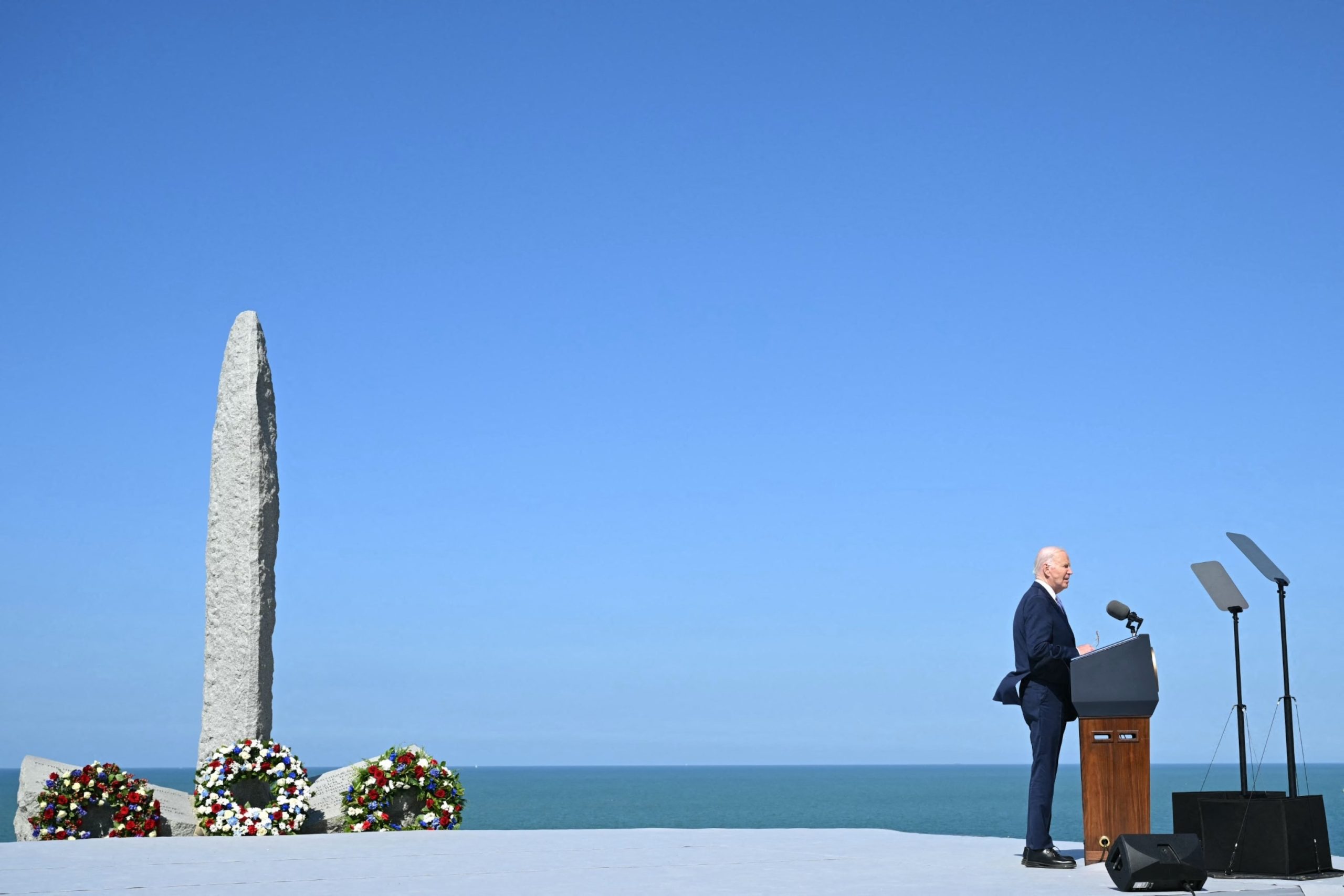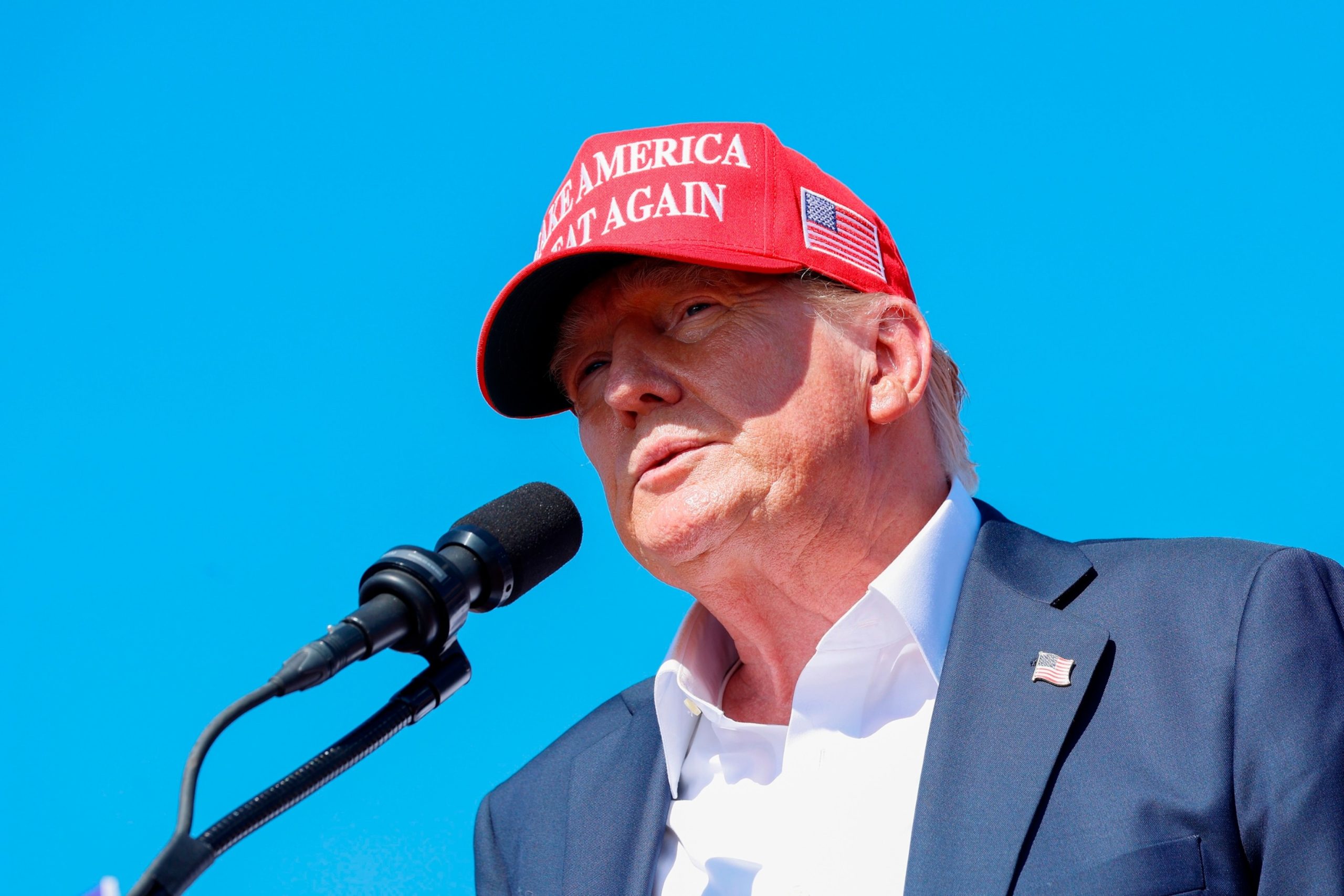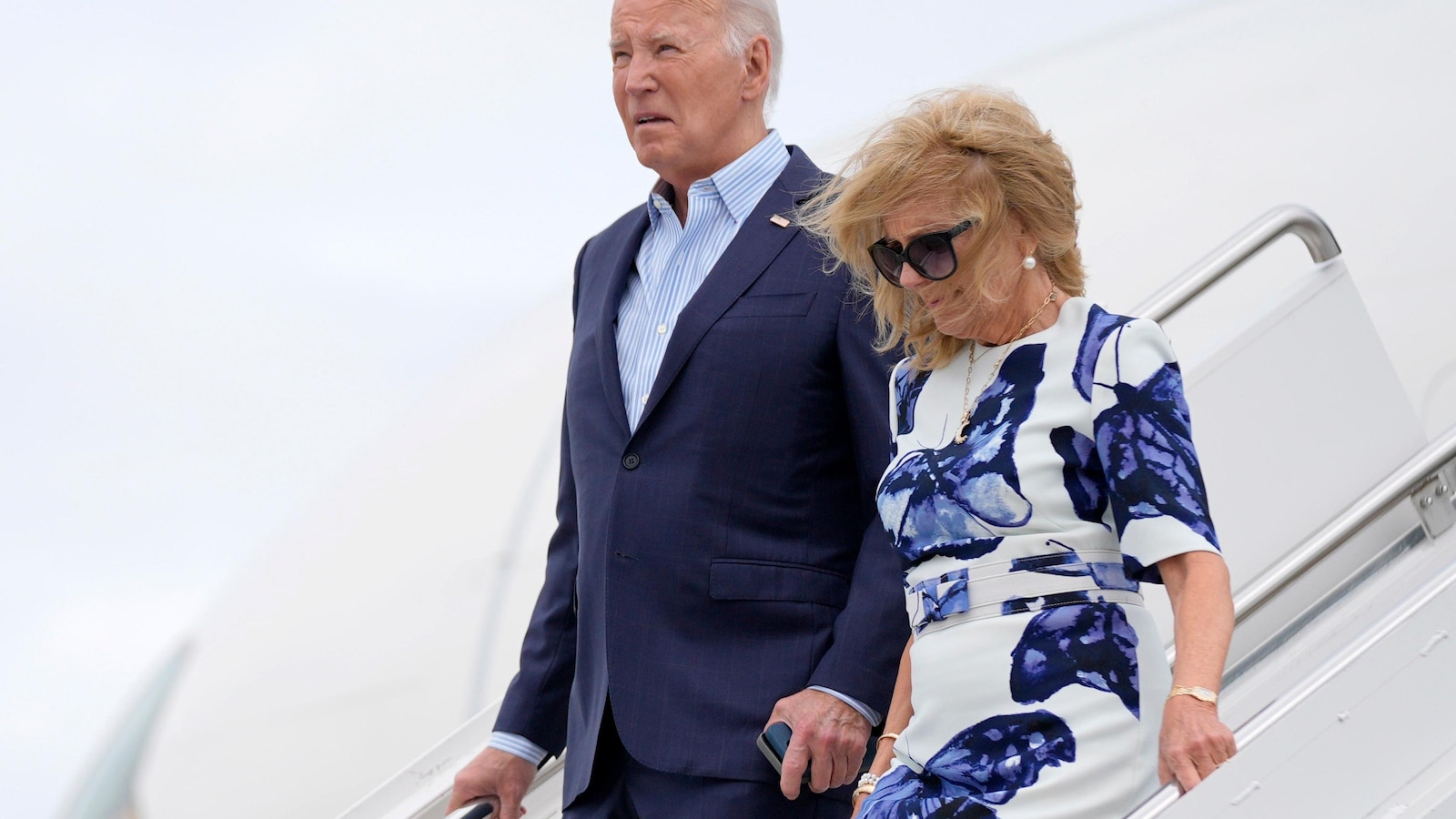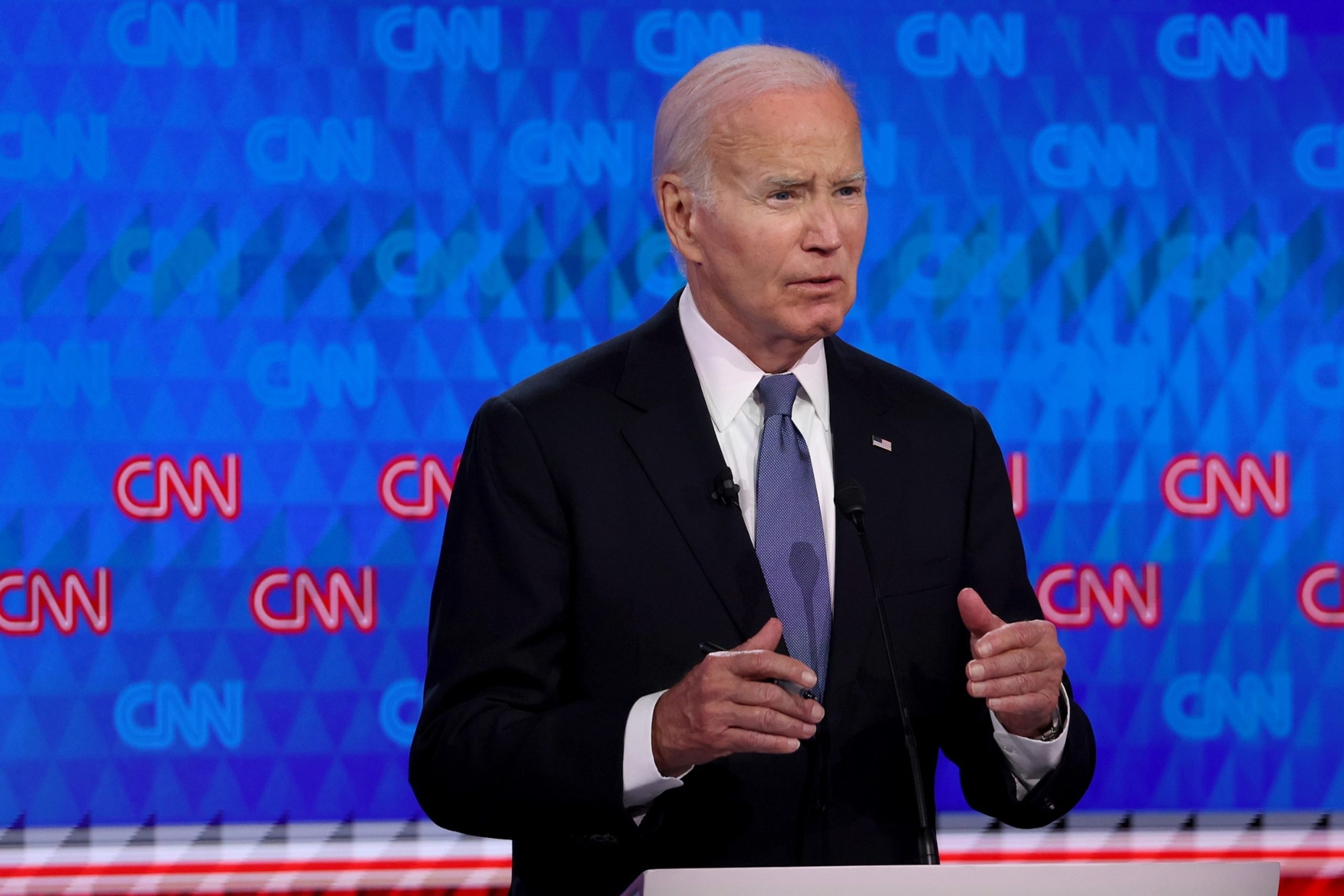In September 2020, as Joe Biden and Donald Trump debated for the first time, moderator Chris Wallace asked how they would reassure Americans the next president would be the legitimate winner that November.
Biden encouraged viewers to vote and said the results would be accepted.
Trump’s final words in response: “It’s a rigged election.”
Four years later, whether American democracy is at stake is all but certain to be a key question at Thursday’s debate.
An ABC News/Ipsos poll in May showed “protecting democracy” was among the top four issues for voters but that they were evenly split on which candidate they trusted to do that.
Issue central to both campaigns
Both candidates are making what happened in November 2020 and then a few weeks later on Jan. 6, 2021, central to their 2024 campaigns, albeit in very different ways.
Protecting democracy is an animating theme of Biden’s reelection bid, as his team paints Trump as an existential threat to the country’s founding principles and the upcoming election as a battle for the nation’s “soul.”
That was a focus of Biden’s speech earlier this month marking the 80th anniversary of D-Day, which, despite being delivered at Pointe du Hoc in Normandy, had a clear message for American viewers tuning in back home.
“American democracy asks the hardest things: to believe that we’re part of something bigger than ourselves,” Biden said. “So, democracy begins with each of us.”
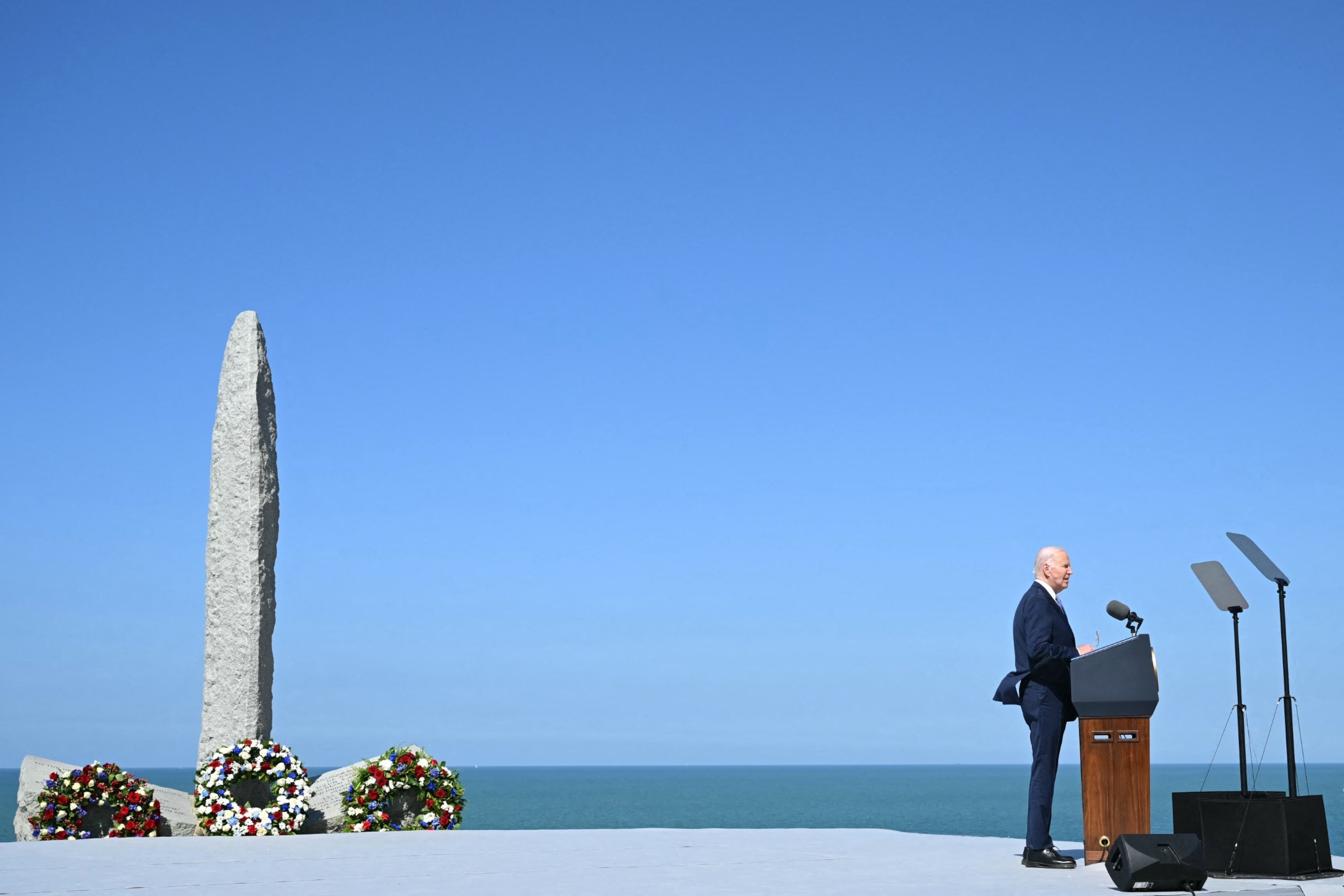
President Joe Biden delivers a speech near the monument on “Pointe du Hoc” clifftop in Cricqueville-en-Bessin, northwestern France, June 7, 2024, as part of the “D-Day” commemorations marking the 80th anniversary of the World War II Allied landings in Normandy.
Saul Loeb/AFP via Getty Images
More recently, as Trump huddled with Republicans just steps away from the U.S. Capitol to plot his second-term agenda, the Biden-Harris campaign released a 30-second ad filled with imagery from the Jan. 6 attack by a pro-Trump mob.
“There is nothing more sacred than our democracy,” the narrator said. “But Donald Trump’s ready to burn it all down.”
The campaign told ABC News Senior White House Correspondent Selina Wang that Biden is preparing ways to hold Trump accountable for his track record and remarks he’s made on various topics, including his comment that he’d be a dictator on “Day 1.”
Trump tries to flip ‘threat’ on Biden
Trump, meanwhile, is trying to counter that Biden is the “threat to democracy,” accusing Biden of weaponizing government and the legal system to prosecute a political opponent.
At the same time, he continues to make his relentless, false claims of fraud in the 2020 election. His assertions have been debunked by his own administration officials, including former Attorney General Bill Barr.
“I think the big thing we have to do is stop the cheating,” Trump said just last week in an interview with his former press secretary, Sean Spicer. “We have to stop the fraud.”
Trump consistently promises retribution against his political foes over his 2020 loss and portrays himself to his supporters as a martyr following four historic indictments, two of which allege illegal efforts to remain in power.
“I’m being indicted for you,” he said this past weekend at the Faith and Freedom Coalition’s conference in Washington. “Never forget our enemies want to take away my freedom because I will never let them take away your freedom. They want to silence me because I will never let them silence you.”
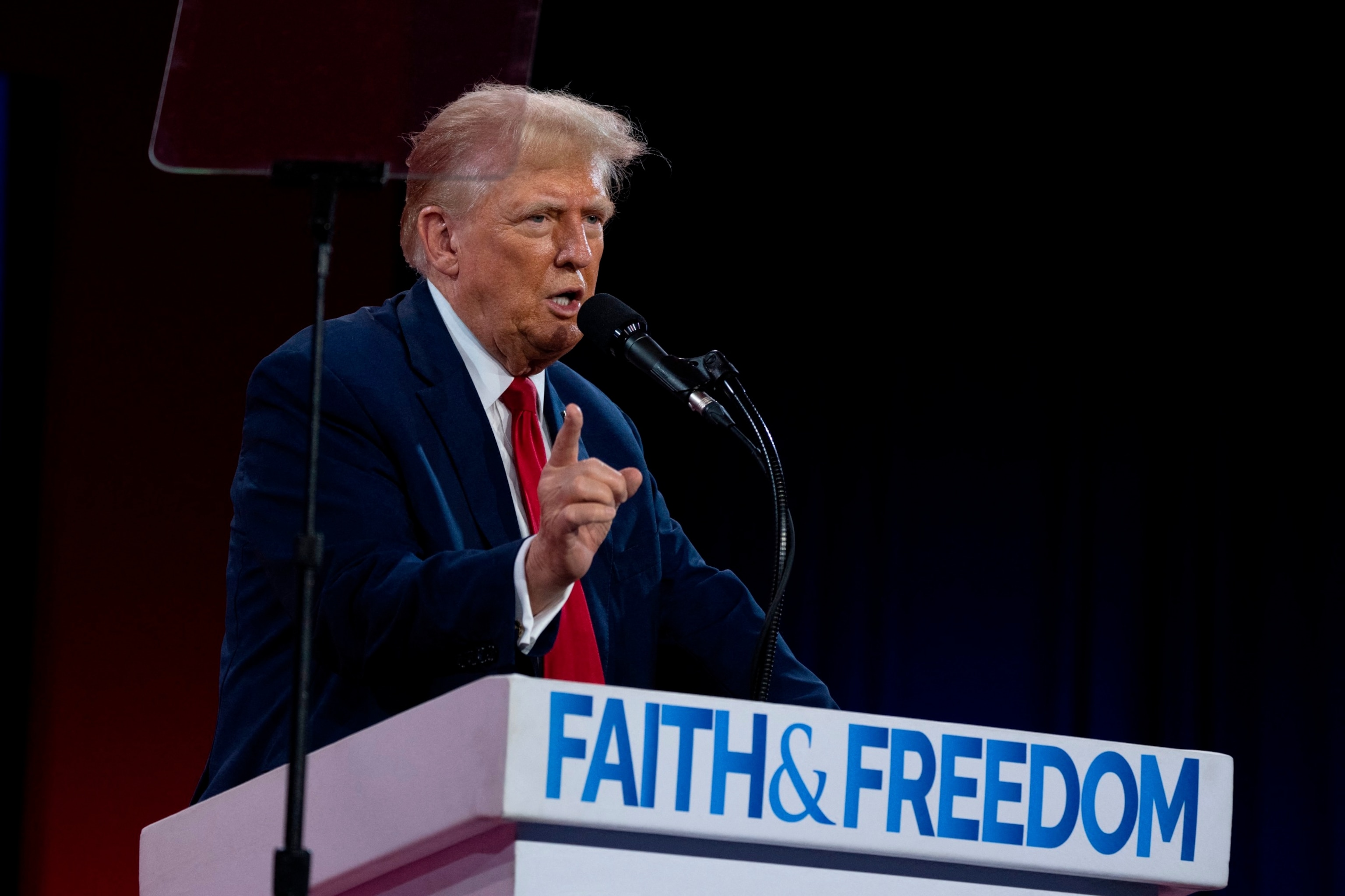
Former President and Republican presidential candidate Donald Trump delivers the keynote address at the Faith & Freedom Coalition’s 2024 Road to Majority Conference in Washington, D.C., June 22, 2024.
Chris Kleponis/AFP via Getty Images
And he’s made Jan. 6 a sort of rallying cry in his campaign, firing up supporters by claiming he would pardon some of those charged or convicted and referring to them as “patriots” and “warriors” — and even “hostages.”
When it comes to the upcoming election, Biden and the White House have committed to accepting the outcome.
Trump told Time magazine last month he believed he would win and thus eliminate the potential for political violence.
But what happens if he doesn’t win?
“It depends,” he said.
As the highly anticipated debate between President Joe Biden and former President Donald Trump approaches, one of the potential focal points of the discussion is expected to be the threats to democracy and the events of January 6th at the Capitol.
The events of January 6th, when a violent mob stormed the Capitol building in an attempt to overturn the results of the 2020 presidential election, shocked the nation and raised serious concerns about the state of democracy in the United States. The attack on the Capitol highlighted the deep divisions within the country and the dangers of political extremism.
During the debate, both Biden and Trump are likely to be asked about their views on the events of January 6th and how they believe the country can move forward from such a dark moment in its history. Biden has been vocal in his condemnation of the attack, calling it an “insurrection” and a “threat to democracy.” He has also emphasized the importance of holding those responsible for the attack accountable.
On the other hand, Trump has continued to falsely claim that the 2020 election was stolen from him and has downplayed the severity of the events of January 6th. He has also faced criticism for his role in inciting the violence that occurred at the Capitol.
The debate is expected to provide a platform for both candidates to present their visions for the future of American democracy and how they plan to address the threats that it currently faces. Topics such as voter suppression, disinformation, and political polarization are likely to be discussed in depth.
Ultimately, the debate on threats to democracy and the events of January 6th will be a crucial moment for both candidates to demonstrate their leadership and commitment to upholding the principles of democracy. It will also be an opportunity for voters to evaluate their positions on these important issues and make an informed decision about who they believe is best equipped to lead the country forward.
